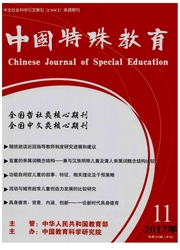

 中文摘要:
中文摘要:
为了探讨物质主义价值观和幸福感之间的关系,以及自尊在其中的中介作用,本研究采用问卷法对1455名大学生进行调查。结果表明:(1)大学生物质主义价值观在性别、年级上存在显著差异;(2)物质主义价值观与幸福感之间呈显著负相关,即物质主义价值观水平越高,幸福感越低;(3)自尊在物质主义价值观与幸福感的关系中起到部分中介作用,说明物质主义价值观在一定程度上削弱个体的自尊,最终影响其幸福感。
 英文摘要:
英文摘要:
This study, by using a questionnaire to test 1455 college students, aims to probe into the relation- ship between college students' materialistic values and subjective well-being, and the mediating effect of self-es- teem. The results show the following: (1) The college students' materialistic values show a significant difference in their gender and academic years. (2) There is a significantly negative correlation between materialistic values and subjective well-being, that is, the more people pursue materialism, the less happy they feel. (3) Self-es- teem in part plays an intermediary role in regulating the relationship between materialistic values and subjective well-being, which indicates that materialistic values, to a certain extent, undermines an individual's self-esteem, and ultimately affects their subjective well-being.
 同期刊论文项目
同期刊论文项目
 同项目期刊论文
同项目期刊论文
 期刊信息
期刊信息
